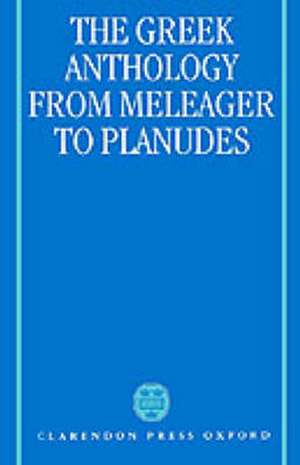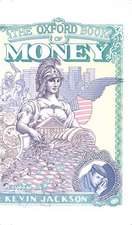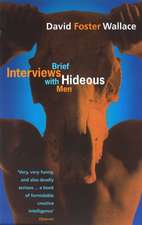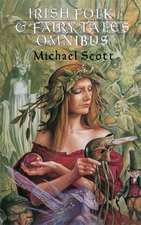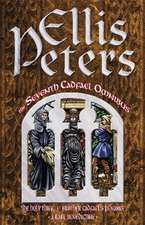The Greek Anthology from Meleager to Planudes
Autor Alan Cameronen Limba Engleză Hardback – 29 apr 1993
Preț: 1259.22 lei
Preț vechi: 1914.36 lei
-34% Nou
Puncte Express: 1889
Preț estimativ în valută:
240.95€ • 252.25$ • 199.37£
240.95€ • 252.25$ • 199.37£
Carte tipărită la comandă
Livrare economică 25-31 martie
Preluare comenzi: 021 569.72.76
Specificații
ISBN-13: 9780198140238
ISBN-10: 0198140231
Pagini: 432
Ilustrații: frontispiece, tables
Dimensiuni: 146 x 224 x 30 mm
Greutate: 0.7 kg
Ediția:New.
Editura: Clarendon Press
Colecția Clarendon Press
Locul publicării:Oxford, United Kingdom
ISBN-10: 0198140231
Pagini: 432
Ilustrații: frontispiece, tables
Dimensiuni: 146 x 224 x 30 mm
Greutate: 0.7 kg
Ediția:New.
Editura: Clarendon Press
Colecția Clarendon Press
Locul publicării:Oxford, United Kingdom
Recenzii
brilliant new book ... Cameron surveys the whole history ... [and] brings to it new finds, new research and a systematic rigour rarely seen before ... Large parts of Cameron's book consist of detailed analysis, crisply and lucidly set out ... But there is much more here than textual genealogy ... Even by Alan Cameron's standards, this is a tour de force of plenary learning and incisive intelligence.
brilliant new book, Cameron brings to it new finds, new research and a systematic rigour rarely seen before.Large parts of Cameron's book consisit of detailed analysis, crisply and lucidly set out. Even by Alan Cameron's standards, this is a tour de force of plenary learning and incisive intelligence
This is an immensely erudite study, with a very great deal that is new. Cameron himself calls it 'austere', but that fails to do justice to his patient pursuit and logical asessment of clue after clue, which have all the fascination of a good detective story.
it is a book of great learning...this is a book of extraordinary learning. One is amazed at the chalcentery which drives Cameron to trace the intricate relations between the epitomes of Cephalas' anthology and its sources. It has never been done before, and he has many original things to say. There is at the moment no other remotely similar guide to the text.
a study of the evolution of the Greek Anthology from its beginnings to the rediscovery of the Palatine Anthology in 1606. The theme is a vast and complicated one ... This lengthy book, written with verve and occasional flashes of humour, is a masterly treatment of the theme and is certain to be the standard work for a long time to come. By his exhaustive use of the evidence C. has illuminated the growth of the Greek Anthology as never before and by his probing questions and stimulating hypotheses has set the agenda for much future research in the field.
brilliant new book, Cameron brings to it new finds, new research and a systematic rigour rarely seen before.Large parts of Cameron's book consisit of detailed analysis, crisply and lucidly set out. Even by Alan Cameron's standards, this is a tour de force of plenary learning and incisive intelligence
This is an immensely erudite study, with a very great deal that is new. Cameron himself calls it 'austere', but that fails to do justice to his patient pursuit and logical asessment of clue after clue, which have all the fascination of a good detective story.
it is a book of great learning...this is a book of extraordinary learning. One is amazed at the chalcentery which drives Cameron to trace the intricate relations between the epitomes of Cephalas' anthology and its sources. It has never been done before, and he has many original things to say. There is at the moment no other remotely similar guide to the text.
a study of the evolution of the Greek Anthology from its beginnings to the rediscovery of the Palatine Anthology in 1606. The theme is a vast and complicated one ... This lengthy book, written with verve and occasional flashes of humour, is a masterly treatment of the theme and is certain to be the standard work for a long time to come. By his exhaustive use of the evidence C. has illuminated the growth of the Greek Anthology as never before and by his probing questions and stimulating hypotheses has set the agenda for much future research in the field.
